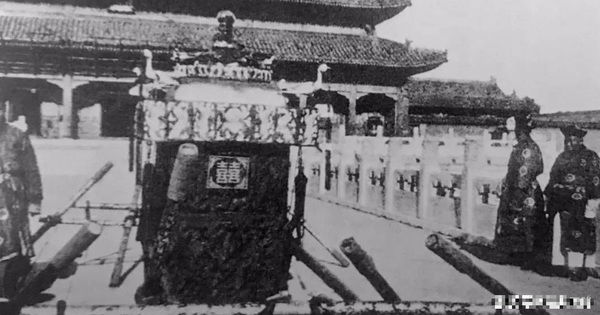Nigeria“If you starve, do you still smell?” Osaja explained of the toxic emissions from an illegal oil refinery in the middle of a mangrove forest.
Fire and explosion of illegal oil refinery killing more than 100 people on April 22 in Rivers state, southern Nigeria, has revealed the underworld of the country’s lucrative illegal oil refining operation.
After hours of traveling by car, motorbike and on foot, the BBC team arrived at an illegal oil refinery in a remote location near a tributary in the Niger River Delta in southern Nigeria. The facility was raided by Nigerian authorities and closed recently.
This area used to be a mangrove ecosystem, but now it is just a bare patch of forest that reeks of oil. The green vegetation here was destroyed, many burnt tree trunks emerged from the oil puddles on the ground, as if a volcano had just erupted.

An illegal oil refinery in the Niger River tributary, southern Nigeria. Image: BBC.
Chidi Lloyd, a local politician, said crude oil stolen from pipelines elsewhere is transported by boat to the crude refinery.
In the middle of the ravaged forest were two large rusty metal barrels, used to “cook” crude oil. Fire is ignited from a pit below the barrel, heating the crude oil and condensing out finished products such as kerosene or diesel based on their respective boiling points. The hot oil is then pumped into the cooling chamber.
However, this stage does not always take place according to the correct procedure and can cause deadly explosions like the tragedy on April 22. In addition to more than 100 deaths, the explosion also injured 150 people with various degrees of burns.
The large number of victims in the incident shows how the illegal oil refining industry in the Niger River Delta has expanded and absorbed many workers in the country over the past decade, amid unemployment in the country. This country is skyrocketing.
Workers often hang out at these underground refineries for weeks and work at night, serving a lucrative business that is tightly organized with a team of finance, logistics and industry experts. subject. The local government has issued an arrest warrant for Okenze Onyewoke, the owner of the illegal oil refinery where the April 22 explosion occurred.
The Nigerian government estimates more than $3 billion worth of oil has been stolen in 2021. This crude oil is stolen from legal pipelines, then sent to the forest to be distilled and then sold on the domestic black market. or export.

Metal barrels are used to “cook oil” in the forest. Image: BBC.
Toxic and combustible emissions from oil refining are usually burned by special towers. The combustion towers are built at the end of the wind direction and away from the equipment of the rig, factory, residential area, office to limit harmful odors and large heat sources.
As illegal oil refining activities in Nigeria boom, emissions are increasing, causing serious pollution. Polluted emissions from illegal oil refineries in the forest spread to Port Harcourt, a large nearby city in the Niger Delta.
In Port Harcourt, an increasing number of patients are experiencing respiratory problems related to air pollution. Visitors who spend the night in the city can feel the black residue around their noses the next morning, even with the windows closed. The sky is black and the space is dark, making visibility can be reduced to less than 30 meters.
Osaja, a well-off resident of the city, thinks this is the price “worth paying”. This unidentified man runs two illegal oil refineries in the woods and lives in a lavish mansion with swimming pool and supercar collection in the city.
“It’s better to live in a polluted environment than to starve. If you starve, do you smell anything?”, Osaja asked. “If polluting makes enough money for everyone to live on, you’ll forget you’re polluting.”

The city of Port Harcourt is engulfed in pollution. Image: CNN.
Some of the unemployed in the area also agree with Osaja.
A photographer in his 30s said that he used to go to the forest to work at an illegal oil refinery when he could not find a job in the city. Here, he is in charge of the “oil cooking” stage, which emits a lot of black smoke that workers often have to inhale.
He said workers here will jump into the river every time there is a fire, but it is not always safe if the oil spills catch fire on the water. Such impending dangers prompted him to quit the profession.
But a woman in her 40s is not very concerned about safety when participating in this illegal activity. She graduated with a bachelor’s degree in computer science, but could not find the right job, so she decided to row a boat to transport crude oil and finished oil in the forest.
“I’m a river woman, this job is not too difficult,” she said.
After the tragedy of the illegal oil refinery fire and explosion, Rivers Governor Ezenwo Nyesom Wike pledged to eliminate this illegal activity. However, those involved in the ring believe that the government needs to solve the problem of employment before thinking about removing the oil refineries in the forest.
Osaja said this system of illegal oil refining and trading is not easy to get rid of because of the many sectors of society involved, including law enforcement. “This is an organized criminal activity, everyone is involved,” he said.
Duc Trung (According to BBC)
at Blogtuan.info – Source: vnexpress.net – Read the original article here



